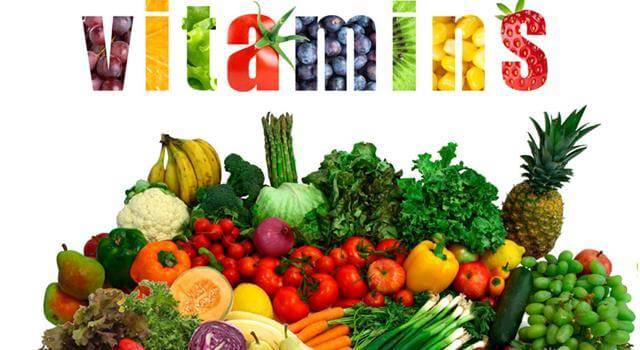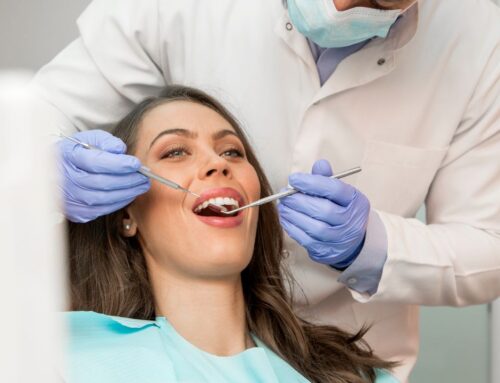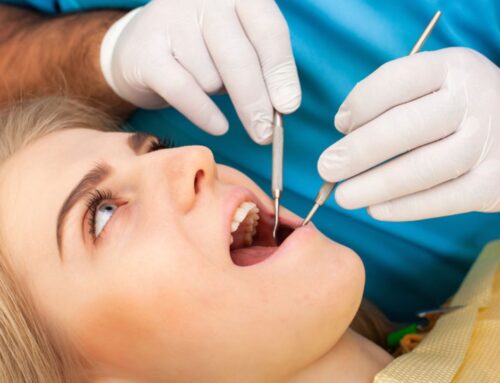
From a young age, we learn about foods like sugar, soda, and acids that can damage our teeth and are taught to avoid those foods. How about the foods that are good for our teeth and promote healthy mouths? Fortunately, eating for healthy teeth and gums is quite easy, and many of us are already on the right track. Icard & Strein Family Dentistry recommends including the vitamins and minerals listed below to help maintain good oral health.
Calcium
We’re told practically from birth that calcium is good for our bone health. So what it’s got to do with our teeth and gums? Calcium helps to provide structural support in our bodies, including in our mouths. The mineral helps harden tooth enamel and strengthens our jawbone.
Foods to look for: Dairy products, leafy greens, almonds, and canned sardines.
Vitamin D
You’ll often see foods like milk fortified with Vitamin D. That’s because calcium and Vitamin D go hand in hand. Vitamin D helps with the absorption of calcium and communicates with our intestines to let them know they should absorb the calcium we consume and disperse it to our bloodstream. This helps bolster bone mineral density.
Foods to look for: Our bodies naturally make Vitamin D when exposed to sunlight. Take note in winter when the angle of the sun blocks the UVB rays that deliver Vitamin D. Latitudes between zero and 35 degrees allow year-round Vitamin D production. Harrisburg, NC is just above the 35-degree mark during the months of December, January, and February, so be sure to supplement with an oral vitamin during the winter months.
In addition to sun absorption, foods like fatty fish, canned tuna, and portobello mushrooms also contain Vitamin D. You can also look for foods fortified with Vitamin D like dairy, cereals, and orange juice.
Vitamin K
Joining the vitamin and mineral train is Vitamin K. This vitamin, specifically, K2 helps our bodies absorb Vitamin D and calcium, directing them to the right locations for optimum health. Vitamin K2 activates the production of osteocalcin, a protein that supports bone and tooth strength.
Lack of Vitamin K can slow the body’s ability to heal and cause more bleeding.
Foods to look for: For Vitamin K1, look for dark leafy greens like spinach and kale, parsley, broccoli, cabbage, and Brussels sprouts. Vitamin K2 comes from our gut flora, so fermented foods like yogurt, kimchi, miso, sauerkraut, and kombucha all contribute to healthy doses of Vitamin K2. You can also consider taking a daily probiotic pill.
Vitamin C
We know that Vitamin C is a bit of super vitamin for our overall health. In addition to helping shorten the duration of our colds, boost our immune health, and decrease our “bad” cholesterol, it is also beneficial to our oral health. It can help strengthen the soft tissues in our gums, prevent gum disease, and prevent teeth from becoming loose.
Foods rich in Vitamin C help strengthen blood vessels and act as an anti-inflammatory. The power vitamin also boosts collagen production, which helps maintain healthy gums.
It’s best to get your vitamin C from whole foods as opposed to juices, since they can be high in sugar and quite acidic, causing erosion of the tooth enamel.
Foods to look for: Many fruits and vegetables contain high amounts of Vitamin C, including oranges, carrots, red peppers, strawberries, kiwi fruit, dark leafy greens, and potatoes.
Vitamin A
This vitamin helps prevent dry mouth and encourages the production of healthy saliva that helps wash away bacteria and foods from your mouth. Further, Vitamin A promotes healing and keeps mucous membranes in good health. A lack of Vitamin A can cause gingivitis.
Foods to look for: Dark leafy greens like kale and spinach, orange-colored fruits and vegetables like sweet potatoes, carrots, pumpkin, cantaloupe, and apricots. It is also found in fish and egg yolks.
Phosphorus
After calcium, the second-most prevalent mineral in our body is phosphorus. Most of this mineral is located in our teeth, so naturally, it’s important to maintain healthy levels of phosphorus to keep our mouths healthy. Working in conjunction with calcium, phosphorus helps keep our teeth strong.
Foods to look for: Phosphorus is present in seafood like sardines, scallops, cod, and shrimp, as well as eggs. Plant-based sources include pumpkin seeds, legumes, whole grains, and tofu.
Vitamin B
Consuming proper amounts of Vitamin B2 and B12 can help reduce the risk of developing canker sores in the mouth. Vitamin B3 also helps prevent canker sores and works to prevent bad breath.
Foods to look for: For vitamins B12 and B2 choose foods like pasta, bagels, spinach, almonds, and nutritional yeast. Vitamin B3 can be found in foods like chicken and fish. Vegans and vegetarians should take a Vitamin B complex supplement to ensure they are getting the daily recommended dosage.
If you have experienced any oral pain or want to learn more about the benefits of different foods for good oral health, schedule an appointment with us.
Our Dentists in Harrisburg NC Can Help
Contact our dental team if you have any questions or concerns regarding oral health. During your visit, an examination will be administered to help determine the best care plan and cost. Give us a call at 704.455.5003



